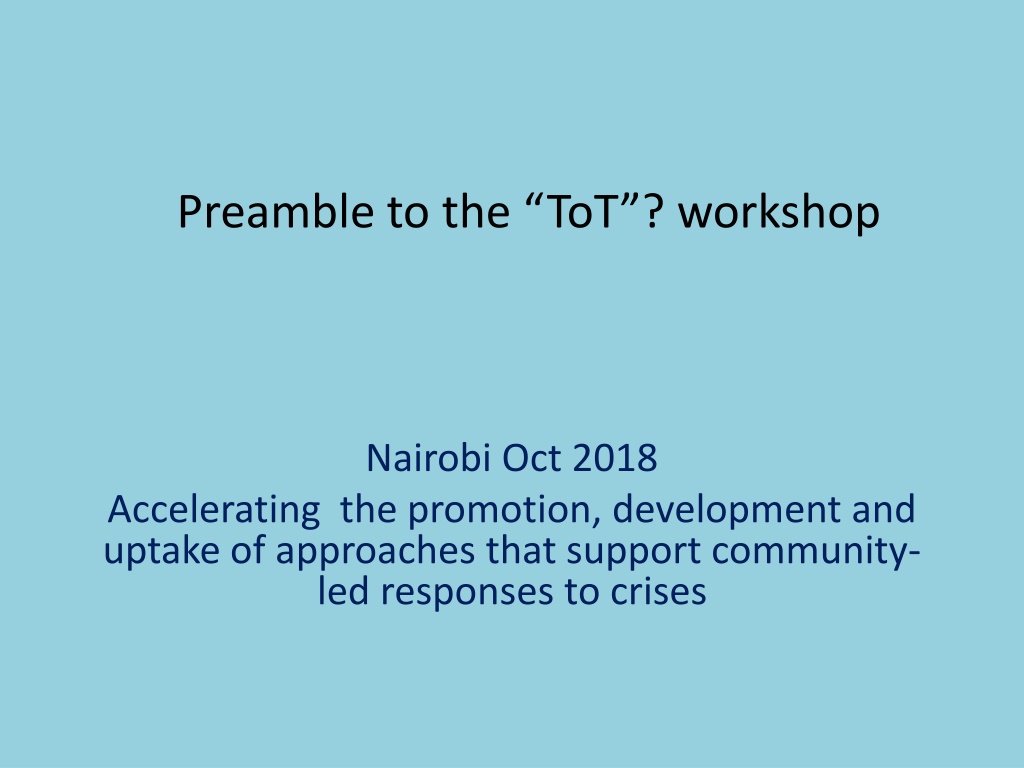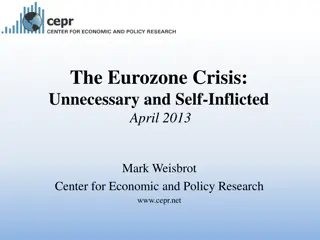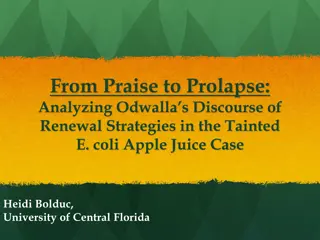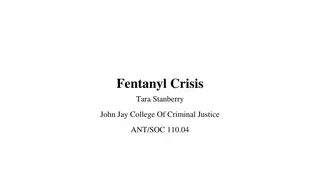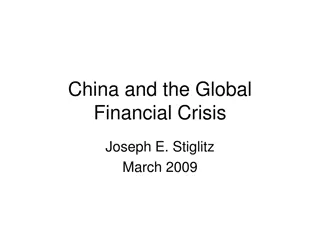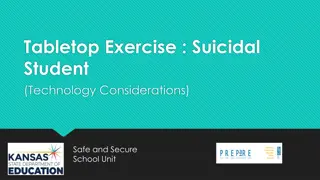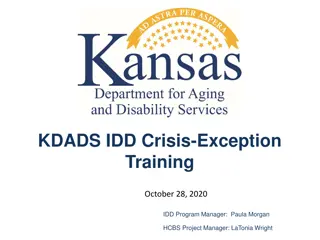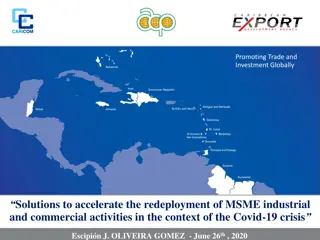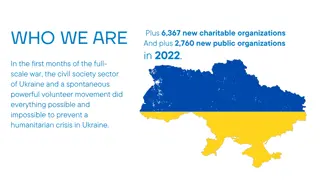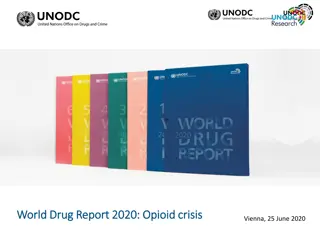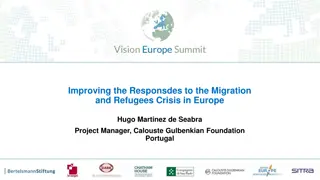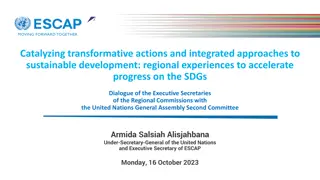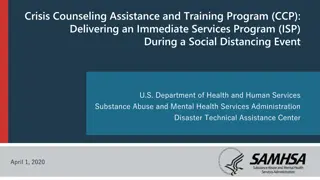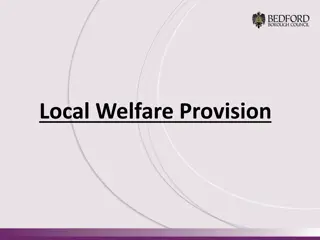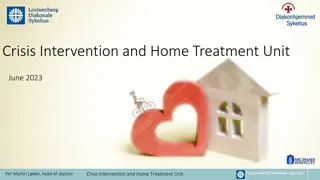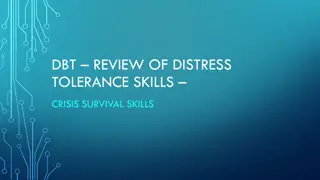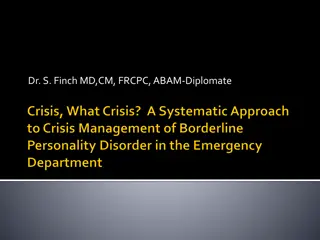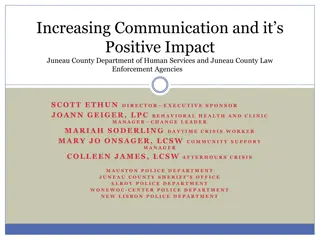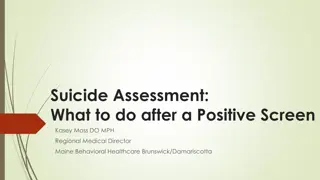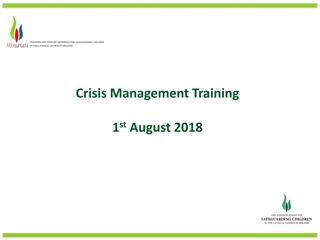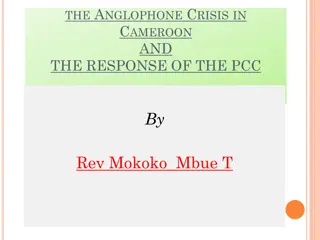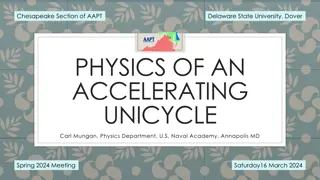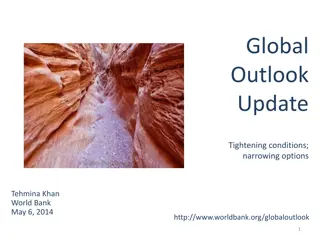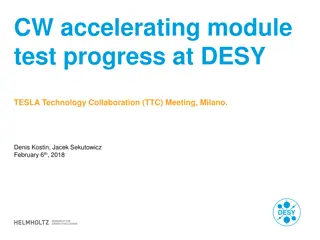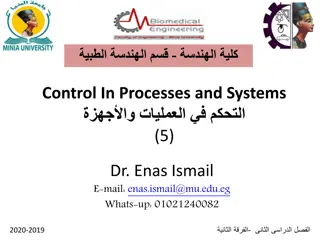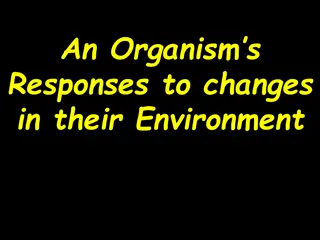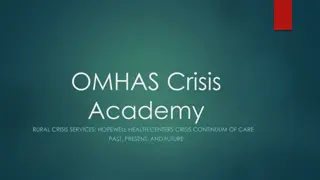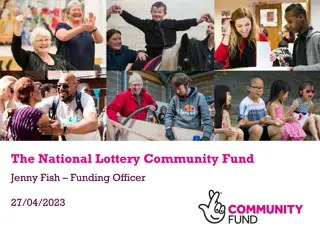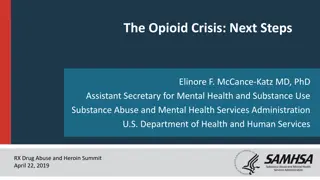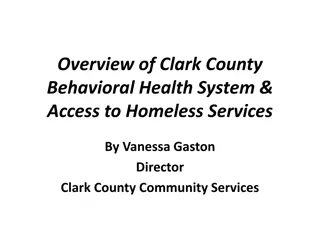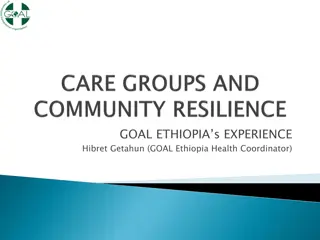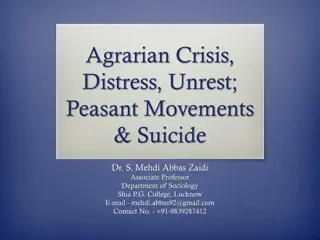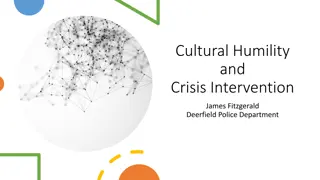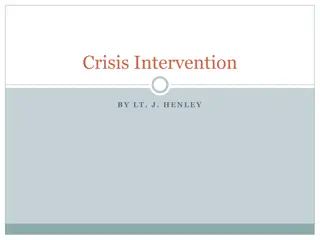Accelerating Community-Led Crisis Responses Workshop
Workshop in Nairobi, Oct 2018 aims to equip participants with skills for promoting and developing community-led crisis response approaches. Focus on understanding core principles, practical applications, and facilitation techniques. Participants engage in co-design/training workshops to enable others to use and cascade such approaches. Discussions on optimal balance between community-led and externally-led responses, institutional changes, and good practices in crisis response.
Download Presentation

Please find below an Image/Link to download the presentation.
The content on the website is provided AS IS for your information and personal use only. It may not be sold, licensed, or shared on other websites without obtaining consent from the author. Download presentation by click this link. If you encounter any issues during the download, it is possible that the publisher has removed the file from their server.
E N D
Presentation Transcript
Preamble to the ToT? workshop Nairobi Oct 2018 Accelerating the promotion, development and uptake of approaches that support community- led responses to crises
Proposed aim of the workshop To enable and equip all participants with any additional understanding, motivation, concepts, systems, networks and facilitation/training skills they need to facilitate others to develop and roll out their own sclr approaches Develop a strong understanding of: The rationale, guiding principles and core components of an emerging sclr practice The practical application of these core practices in crises contexts How to facilitate co-design/training workshops to enable others to develop and use sclr approaches as part of their emergency response Next steps for cascading and rolling out the approach
Proposed schedule 1stsession: 9.00-10.30 am tea break (20 mins) 2ndsession: lunch break (1 hour) 3rdsession: tea break (20 mins) 4thsession: 10.50-12.30 am 1.30-3.00 pm 3.20-5.00 pm morning session only on Day 6 any informal evening sessions?
Workshop within a workshop You will be both: Participants in a co-design/training workshop to equip you to develop and apply sclr approaches And Trainers in a ToT workshop thinking through how to run your own co-design/training workshops to enable others to use sclr approaches
trainers Time Out to discuss the co-design/training approach being used and suggest improvements.
Is this ToT or .Enabling of Facilitators? .Preparation of promoters? ..Activation of catalyzers?
optimal balance in disaster response between what is led by the people experiencing the crisis themselves and what is externally-led Institutional changes in donors, NGOs, UN, Govs Good practices for sclr ..Approach Y Approach Z Approach A Approach B Approach C
Process 1. Generate sufficient organisational buy in (& donor support) to start 2. Decide on initial countries, partners, programmes 3. Secure funds for piloting ($20,000 ? per local NGO) 4. Decide on process of kick-starting : i. co-design workshop, then pilot ( & learn & scale-up) .or ii. On-the-job coaching, designing as you go (& learn, scale - up) or . 5. Designing your learning process (workshop, coaching, mixture) 6. Define participant criteria 7. Preparatory documents for participants
Priority learning objective Developing the mindset Building the confidence Creating the space Breaking the barriers
Skills and experiences Community mobilisation, animation, facilitation Needs assessment Establishing/managing micro-grant funding schemes Cash transfer programming Livelihood recovery & development Psychosocial recovery CB-DRRM Conflict sensitivity, analysis & peace building Community based protection Supporting community advocacy Gender, inclusion issues Skills training, adult learning Mentoring, coaching, Organisational development Local partnerships, organisational relationships Fund raising and proposal writing Coordination systems (local, national or international) Longer term community-based development work Working with, building capacity of, local Government Working with/along side UN agencies Adaptive management, learning leadership Finance management, accountability systems 1. 2. 3. 4. 5. 6. 7. 8. 9. 10. 11. 12. 13. 14. 15. 16. 17. 18. 19. 20. 21. 22.
Module / Session reviews 1. How well did the session meet it s learning (and mindset) objectives? a. Successfully? or b. Good enough but could be improved? or c. Needs to be redesigned? 2. What ideas do you have for making the session more effective? How would you facilitate it differently?
Mindset & learning objectives of Module 0 Normal workshop start: objs, agenda, intros, ground rules, housekeeping etc .quick as possible Understanding of the wider process of kick-starting sclr programming,or which workshop is a small part Introduce concept and mindset and rules of co-design and that sclr is an emerging practice Instil feeling of opportunity/safe space to create, change the rules, do things differently, challenge norms Stimulate interest, curiosity, motivation Mapping the capacities in the room
Mindset & learning objectives of Module 1 1. Increase awareness/understanding of: Drawbacks of depending only on conventional (externally-led) humanitarian response Who are most significant responders to crises Some core concepts, terms Aims and potential benefits and risks of sclr Overview of emerging practice: some possible core components of an sclr practice identified to date Whose capacity needs developing? Unlearning 2. Stimulate a real interest in being part of the process (mixture of intellectually stimulating, practical, for-real, fun) 3. Accelerate getting to know each other, readiness to contribute 4. Checking on agenda, pace, capacities, direction: (demonstrating flexibility, responsiveness if needed)
Proposed content of the Workshop Day 1 Module 0: Getting started, co-design Module 1: Overview of sclr: rational and emerging practice Day 2 Module 2: Participatory Action Learning in crises (palc) Day 3 Module 3: Emergency micro-grants Day 4 Module 4: Strengthening capacity in crises inc. basic OD, psycho-social issues, community-based protection, conflict transformation, networking & linking Day 5 Module 5: Addressing root causes during crises Module 6: Enabling demand-led coordination systems Module 7: Changing institutional relationships Day 6 Module 8: Planning the pilots, follow-up and next steps
